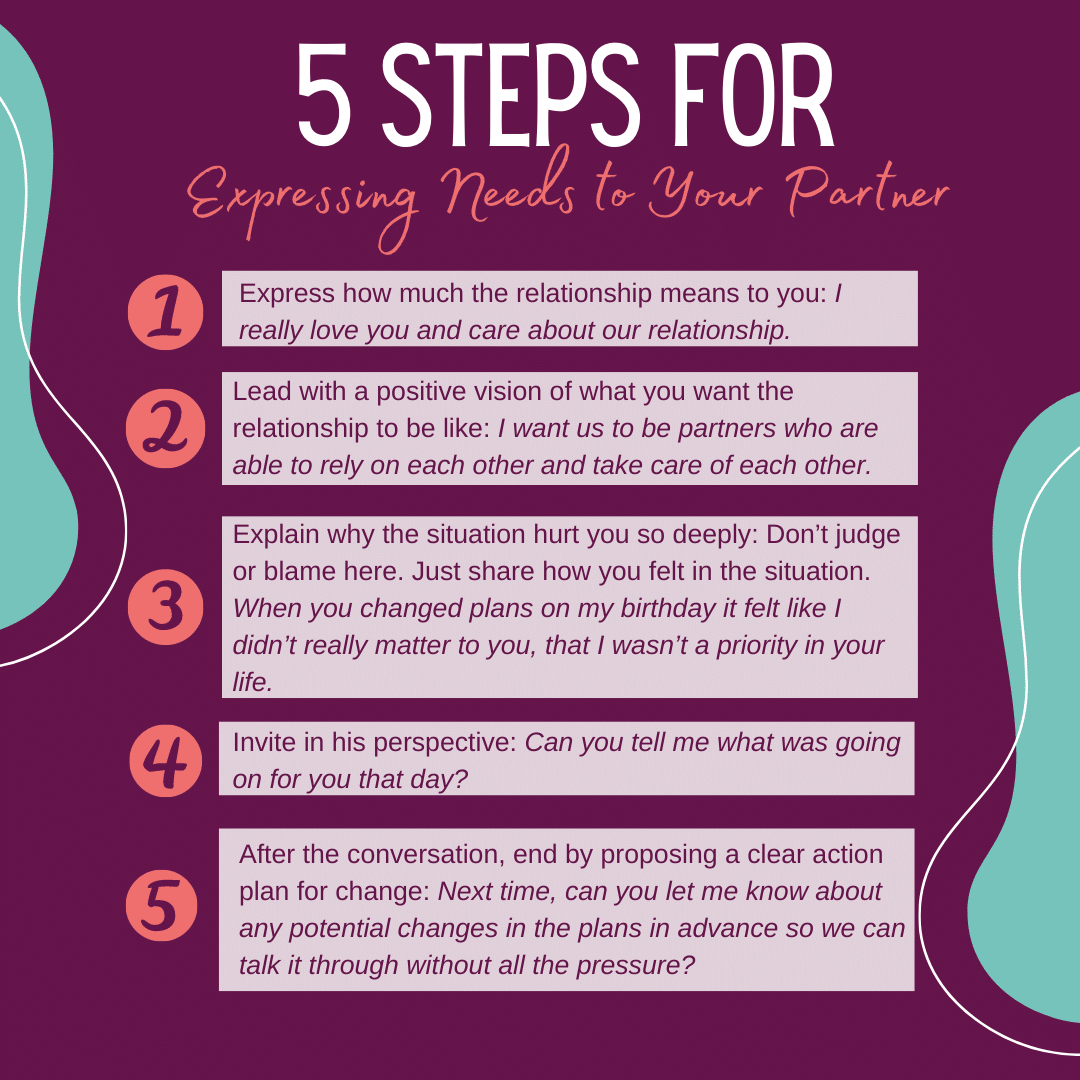Dear Ellie: How do I express needs to my partner?
Dear Ellie,
I have been dating my partner for a little over a year, and we are both recently graduated from college. It was my birthday last week and we made some plans to go out for dinner and then head back to my place for a movie. When he got to my house to pick me up, he was wearing his workout gear and said that he had forgotten about a commitment he had made to play basketball with friends later that night. He suggested that we grab food quick and then go to the gym, where I could watch his game. I was feeling pretty unloved/devastated at his thoughtlessness, but agreed anyways. We went out for dinner, but then it turned into an argument pretty quickly, and then ended with him playing basketball and me watching the movie alone. How did this go so wrong, and how could we have dodged this?
Sincerely,
HappyBirthday to Me
Hello Happy Birthday to Me,
Thanks for reaching out! All too often, we try to just “get over it” and move on with our lives. We try to minimize the situation and how deeply it affected us. We can try to brush the whole situation aside with phrases like “it was just another stupid argument” or “he’s just a jerk”. But clearly, your heart says there’s a lot more to the situation, even if your brain tries to deny it. The first step towards growth and connection in these cases is being honest with yourself and the deep reaction you are having.
Something I repeat over and over again with the people I work with is, “if you are having a deep reaction to something, it means that it is connected to something you deeply value”. Any time you feel anger, anxiety, fear, or worry, it means that you are trying to protect something you value. If you didn’t care, you wouldn’t feel anything. Anger is especially important to pay attention to because it is misunderstood within our society. Yes, anger is our fighting emotion. But anger is not synonymous with “aggression”. Aggression can occur with or without anger, and when it occurs with anger, it is usually when a person feels more desperate and out of control. Anger, in and of itself, is a protective response trying to fight for what you value. Think of a mama bear protecting her cub. While anger can become distorted along the way, all anger originates to protect something precious to you.
In this situation with your boyfriend, look for what your anger is trying to protect. Why did his actions hurt so much? What felt attacked or threatened by the situation that you were trying to defend? Did your sense of worth feel undermined? Did you feel like the relationship didn’t actually matter to him? Your worth and the importance of the relationship are worth fighting for!
So now we get to the question, how do you fight well? It’s clear, now, that this situation isn’t just about scheduling better or deciding who was right. What’s at stake here is your own sense of worth and the mutual esteem of the relationship. You might say I’m being over-dramatic, and that “it was just another stupid argument. Why take it so seriously?” But the truth is, that getting to the real heart of the issue actually makes things clearer and less complicated. Then you don’t need to pretend and cover up your true emotions. Get to what matters and work there; otherwise the true emotions fester and come out in a million tiny more confusing ways anyway. Facing the situation head on creates an opportunity for real growth and connection as the relationship moves forward.
Alright let’s get practical! Here are five steps I would suggest for processing the situation. I would suggest first taking time to yourself to gain clarity for each of these steps before talking with your boyfriend. Then in the conversation…
- Express how much the relationship means to you: I really love you and care about our relationship.
- Lead with a positive vision of what you want the relationship to be like: I want us to be partners who are able to rely on each other and take care of each other.
- Explain why the situation hurt you so deeply: Don’t judge or blame here. Just share how you felt in the situation. When you changed plans on my birthday it felt like I didn’t really matter to you, that I wasn’t a priority in your life.
- Invite in their perspective: Can you tell me what was going on for you that day?
- After the conversation, end by proposing a clear action plan for change: Next time, can you let me know about any potential changes in the plans in advance so we can talk it through without all the pressure?
Thank you so much for reaching out! Let me know how things turn out, and please reach out again if more questions come up!
Your Ellie Mental Health Therapist
Get matched with a therapist near you today at Ellie Mental Health



